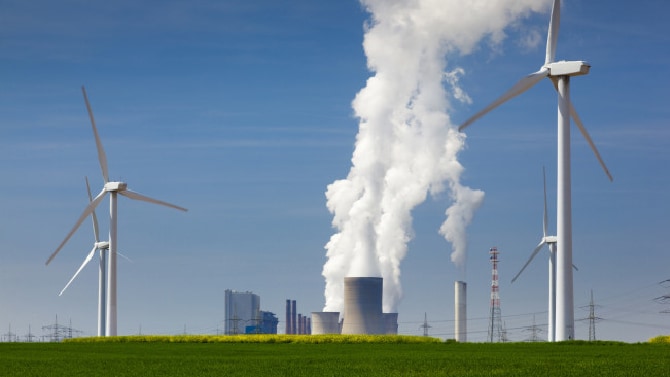Our vision for the PwC Network, fuelled by our purpose, is to be the most trusted and relevant professional services business in the world.
The New Equation focuses on two interconnected needs that organisations face in the coming years: building trust across a wide range of areas that are important to stakeholders, and delivering sustained outcomes in an environment where the risk of disruption is more intense than ever before.
PwC Africa’s six focus areas will help to address these needs among clients, communities and other stakeholders in Sub-Saharan Africa.
We’re calling our new global strategy The New Equation, and it speaks to the two most fundamental needs clients and organisations are grappling with today. Learn more about The New Equation in Africa
The New Equation
A community of solvers coming together in unexpected ways to solve the world’s most important problems.

Delivering sustained outcomes which make a difference
Our approach embodies who we are: a community of solvers coming together in unexpected ways to deliver outcomes for organisations, their customers, stakeholders and communities, which make a positive and enduring impact right across the value chain.
Our formula is simple: we deliver bold ideas, solutions which are human-led and tech-powered and meaningful experiences which deliver real-life results.
Solving for the issues that matter to our clients and the world

ESG
Organisations can help to build trust and deliver sustained outcomes by implementing effective Environmental, Social and Governance (ESG) strategies. That’s why we’ve chosen ESG as one of six areas that we’re focusing on as PwC Africa, to bring The New Equation to life - both within our own organisation, and in our work with clients.

Ambitious commitments and a just transition: COP26 and Africa
The 26th UN Climate Change Conference (COP 26) occurs at a critical time for Africa. The continent is particularly vulnerable to the threat of climate change and is already susceptible to some of its adverse effects. Across the continent, businesses, industries, societies, and the natural environment are under threat from rising global temperatures caused by extremely high levels of greenhouse gas emissions.

A community of solvers coming together to make a difference
In response to technological disruption, climate change, fractured geopolitics, and the continuing effects of the COVID-19 pandemic, amongst other challenges, many organisations need to refocus. There is a sense of urgency now, with regard to successfully responding to these challenges by building trust and delivering sustained outcomes that create value.
You can’t buy trust - you have to earn it
Trust has never been more important. It’s the link that connects your organisation, your people, your customers, your stakeholders and the world. We know that trust isn’t something you can buy off the shelf. It’s something you earn through every interaction, every experience, every relationship and every outcome delivered.

A world built on the foundations of trust and transparency
Building trust for today and tomorrow
During times of uncertainty, organisations, people, communities and other stakeholders look to institutions they can trust. The New Equation is about helping organisations to build and sustain trust in their people, products, services, operations and the communities in which they operate. Our Africa CEO, Dion Shango, shares his views here.

Africa business agenda
For CEOs in Africa, having the conviction that they can overcome the challenges they face and believing that things will get better, has sustained them through past and present difficulties, and will no doubt give them strength in the future. We believe now is the time for business leaders in Africa to drive growth from new possibilities to take on tomorrow.

Cyber threats in the manufacturing and mining sectors
Increasingly, companies are looking to adopt smart technologies to optimise production and decision-making in order to create sustainable businesses for the future.

People solving together powered by technology
The New Equation is a future that is human-led and tech-powered. For us, people and technology work hand in hand. It's about how human ingenuity combines with technology innovation and experience to deliver faster, more intelligent and better outcomes while building trust across the value chain.
People and technology working together to create a stronger tomorrow

The importance of embedding faculty support in African universities' digital transformations
Across African higher education institutions, the shift to remote learning has largely been successful, but more progress is required in terms of faculty development.
The COVID-19 pandemic caused higher education institutions around the world to rapidly accelerate their digital transformation plans. In Africa, this presented unique challenges regarding accessibility and connectivity.

Delivering sustained international development outcomes in Africa
The COVID-19 pandemic, climate change and other urgent challenges clearly demonstrate the need for greater resilience and sustained development outcomes in Africa’s economies and societies. Simultaneously addressing existing vulnerabilities and promoting inclusive and resilient growth requires significant investment and expertise.

Hopes and fears 2021
Workers want more digital skills, more inclusivity, and moreflexibility. In one of the largest global surveys of workers, people revealed a mostly optimistic story. Most said they believe they can meet the challenges of automation - and they proved it during the pandemic: by learning new digital skills and by quickly adapting to remote work.
Contact us






